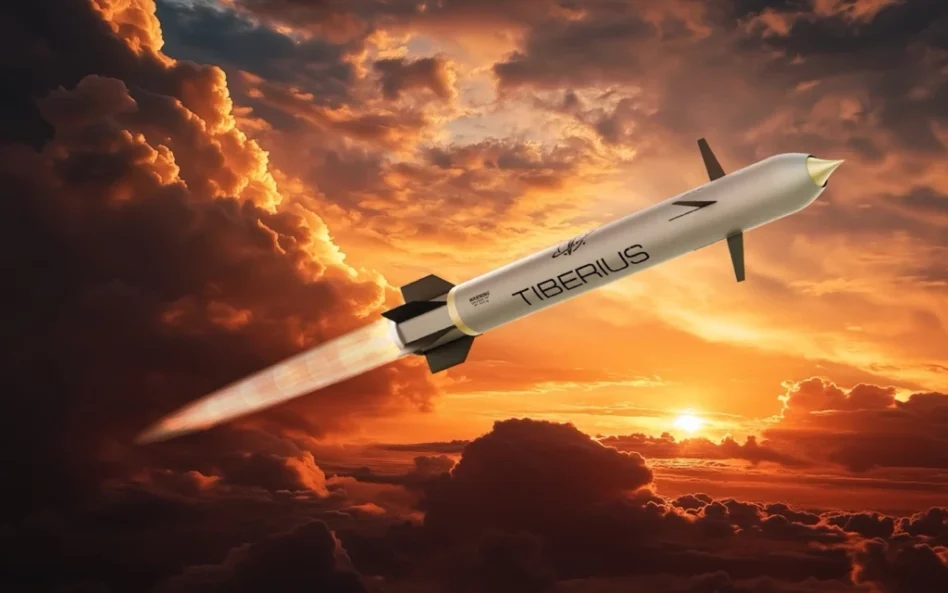Well, it’s shaping up to be quite the week in European defense. This morning, “defense-as-a-service” company Tiberius Aerospace announced in an exclusive release to Tectonic that it has raised a $4.5M founders’ round, backed by Never Lift Ventures, Blacklake, firedrop VC, Beaten Zone Ventures, and other strategic investors.
Just last week, the company also announced a UK Ministry of Defence contract—worth about $5M plus the cost of production and procurement, according to CEO Chad Steelberg—to accelerate development of its 155mm ballistic munition, Sceptre. Testing of the round will be independently validated by the US Defense Innovation Unit.
The company says this new funding will allow it to “accelerate product development, expand engineering and manufacturing capacity, deepen partnerships with allied governments, and support the commercial launch of GRAIL,” its AI-powered tool for developing, manufacturing, and testing weapons.
“What Tiberius is really about is not just building a weapon system, but instead changing the paradigm in which weapon systems are procured and how they evolve and innovate over time,” Steelberg told Tectonic.
Hard launch: Tiberius was founded in 2022 by Steelberg, Andy Baynes (CSO), Michael Martin (COO), and Tim Conners (Chief Engineer). Baynes and Steelberg come from Silicon Valley pedigrees—Baynes held senior roles at Apple and Google, while Steelberg was at Google and founded Veritone—and wanted to apply West Coast startup lessons to a defense problem the war in Ukraine has made painfully clear: munitions shortages and defense production bottlenecks.
The idea is simple enough: Tiberius says it separates R&D from manufacturing, offering an AI-powered development and marketplace solution (that’s GRAIL) that helps governments and manufacturers design and build defense systems faster and at lower cost, closer to home.
Alongside that, the company develops its own long-range, ultra-accurate munitions (that’s Sceptre). All of these systems can be upgraded quickly to stay effective on the battlefield in places like Ukraine. Think SaaS—only, instead of software, it’s weapons.
Low, low price: Steelberg told Tectonic the goal is to keep costs low for governments and taxpayers by licensing their plug-and-play model. With something like Sceptre, that means governments or defense companies can basically buy the license for the system and R&D from Tiberius (for about $5M) and then just pay separately for manufacturing and upgrades.
“What they get [for that $5M] is they get an intellectual property license to manufacture and order from us that weapon system at any level of scale,” he said, “They could buy one. They could buy none. They could buy 10 million. We simply add on the IP license fee on top of the cost of manufacturing.”
Then there’s GRAIL, which is kind of like the App Store, but go boom. Other companies and governments—even the primes—can have their components (say, a battery) or weapons systems certified and listed on the GRAIL marketplace for a cost. Tiberius tests the parts (or weapons), gives them a lethality score, and makes costs, specs, and capabilities visible to potential buyers. Steelberg said that ensures users are able to build the best systems possible.
“Our goal is we want to drive the cost of manufacturing down by having a competitive marketplace for manufacturing innovation that therefore makes the cost of ownership and fielding weapons cheaper,” Steelberg said.
Across the pond: So far, Tiberius has kept an eye on Europe—but Steelberg said that’s mostly because the UK and countries on the continent were way more locked in on the war in Ukraine. “What we found was that NATO countries, the UK, Germany, et cetera, were definitely more engaged than the Americans when that war broke out,” he said.
But with this new cash, he said the plan is to build out manufacturing for Sceptre and their newest weapon system, a larger rocket called Invictus that should be rolled out next year. He also said they’re talking to US military partners to try and get their systems working across the pond, though there were no active contracts he could disclose quite yet.

